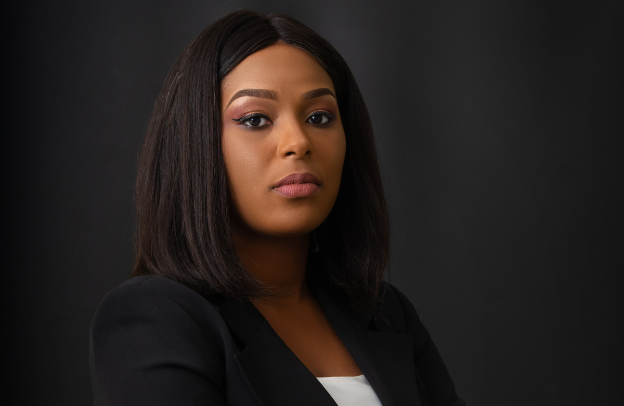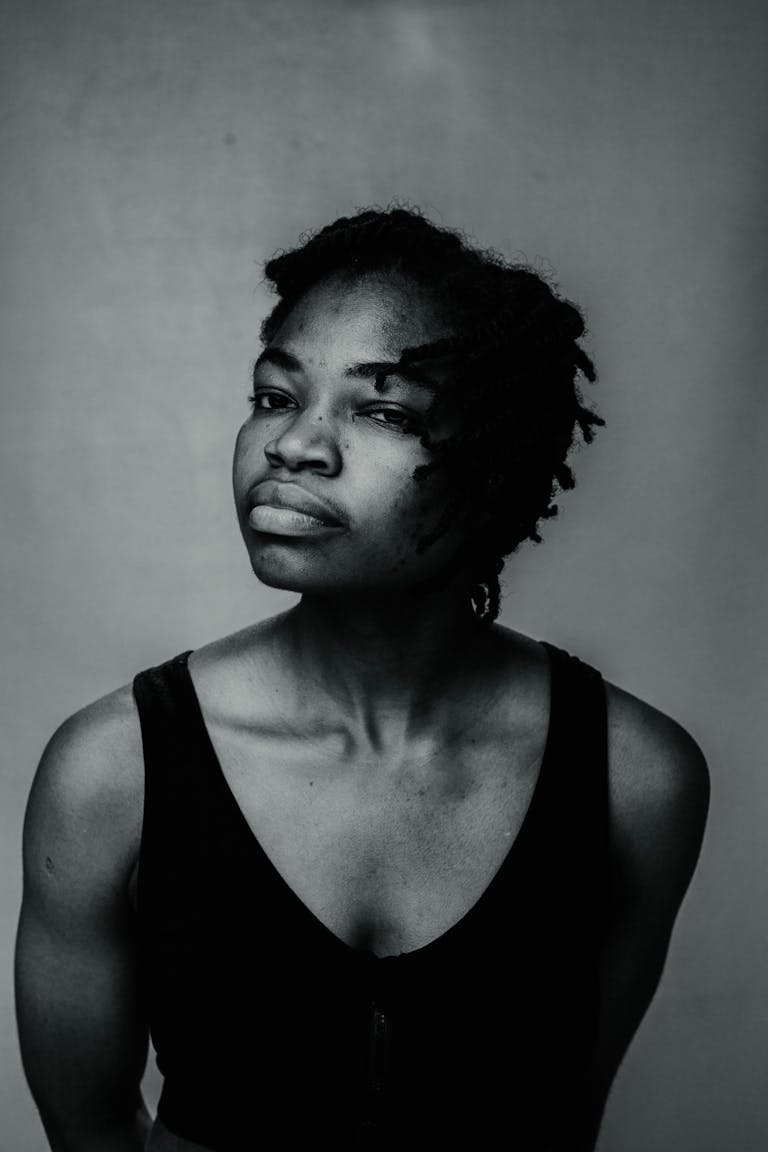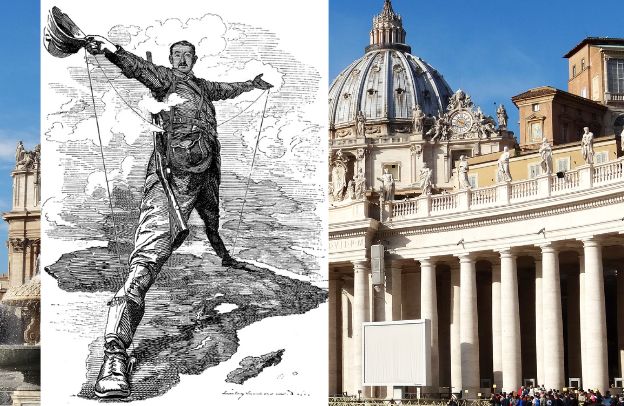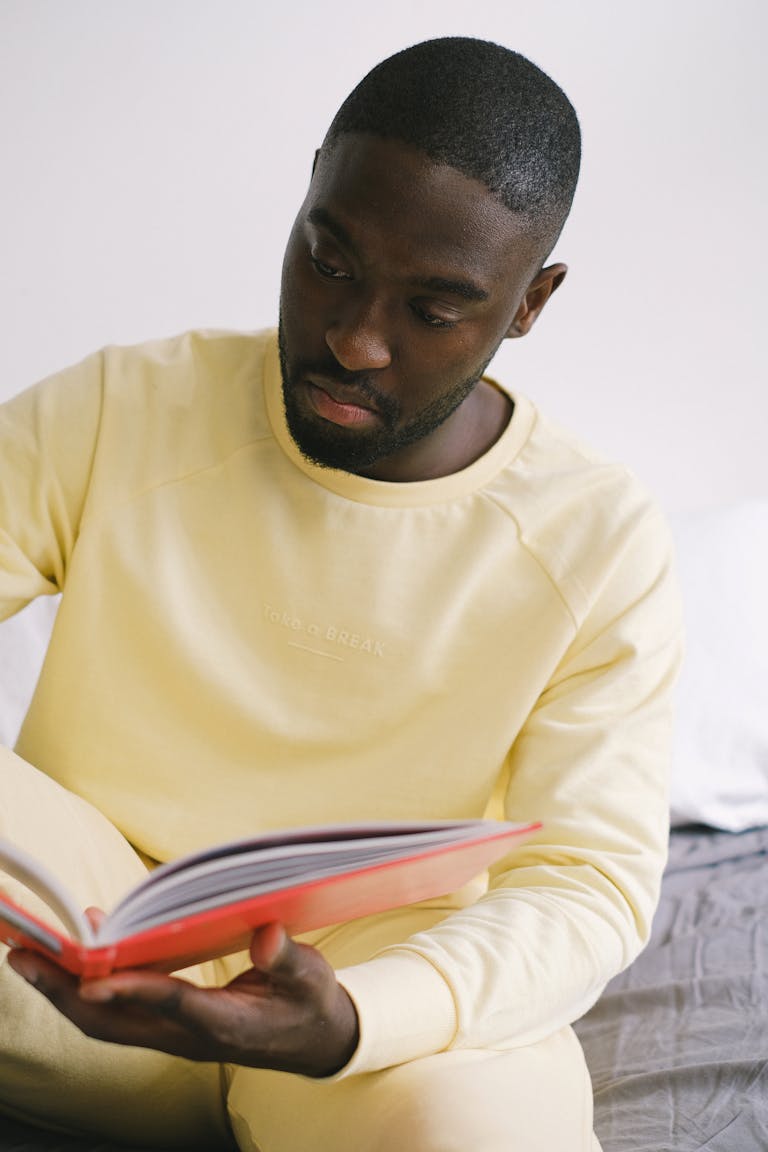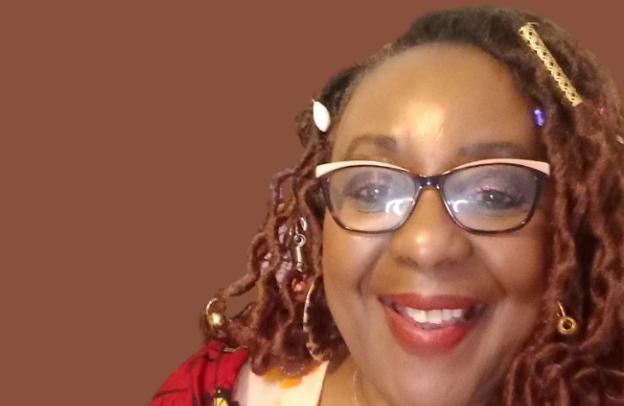All You Need To Know About Vodou With Carole Demesmin Mawoule
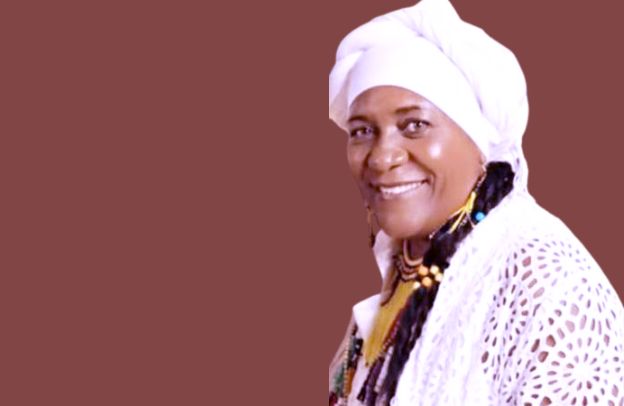
Vodou is a West African Vodun religion that has been mixed with Roman Catholicism by the descendants of the Dahomean, Kongo, Yoruba, and other ethnic groups who had been enslaved and transported to French colonial Saint-Domingue (as Haiti was then known).
From Ancestral Roots to Your Professional Legacy.
You’re exploring the deep power of connecting with ancestral traditions. That same journey of uncovering your authentic, core story is the most powerful tool you have in your professional life.
The Story to Asset Framework™ is our system for diaspora founders who want to build a business that is a true expression of their unique purpose. The first step is a free, 15-minute call to map the path from your authentic story to your lasting legacy.
Book Your Free 15-Min Legacy Call
Vodou is a word that originates from the Fon language in the African kingdom of Dahomey (now the Republic of Benin). Vodou essentially means ‘spirit’ or ‘deity’.
In today’s episode of Obehi podcast, we are going to learn more about Vodou from a Vodou priestess who will be joining us from Haiti, via skype.
Some Key Points In This Episode
- The background of Vodou,
- Why there is a high negative media sensation about Vodou,
- Why we need to learn about the true essence of Vodou today.
The Full Interview with Carole Demesmin Mawoule
5 Reasons Why Vodou Is More Relevance Than Islam And Christianity
While many might profess Islamic and Christian faith, it needs to be pointed out that Vodou actually holds unique relevance for the African diaspora compared to Christianity and Islam. This is particularly within the context of cultural preservation, ancestral connection, and identity. Here are five key examples illustrating why Vodou is profoundly significant for the African diaspora.
Want to learn more about storytelling? Start by downloading the first chapter of The Storytelling Mastery.
1. Cultural Continuity and Identity
Vodou provides a direct link to African heritage and traditions that were often suppressed or lost during the transatlantic slave trade. Unlike Christianity and Islam, which were introduced through colonization and conversion efforts, Vodou evolved from the spiritual practices of various African ethnic groups.
It preserves and adapts these traditions, allowing practitioners to maintain a strong sense of cultural identity and continuity. For many in the African diaspora, Vodou represents a living connection to their ancestral roots and a means of keeping their heritage alive in a way that Christianity and Islam, as practiced in the diaspora, often do not.
“African spirituality”, said an article, The relevance of African Indigenous religions in the 21st Century, citing Jacob Olupona, professor of Indigenous African religions at Harvard Divinity School, “Simply acknowledges that beliefs and practices touch on and inform every facet of human life, and therefore African religion cannot be separated from the everyday or mundane.”
2. Ancestral Remembrance and Reverence
Central to Vodou is the practice of honoring ancestors, who are considered active participants in the lives of their descendants.
This reverence for ancestors is a core aspect of Vodou, reflecting a belief in the ongoing presence and influence of those who came before. In contrast, while both Christianity and Islam acknowledge ancestors, the focus is less on direct interaction and veneration.
See alsoIfa Theology And African Spirituality: Exploring the Virtues of Life and Purpose
Vodou’s emphasis on ancestral connection helps maintain a sense of continuity and respect for one’s lineage, offering a spiritual practice that is deeply rooted in African traditions of ancestor worship.
3. Integration of African Spiritual Practices
Vodou is a syncretic religion that blends various African spiritual systems with elements of indigenous Caribbean beliefs and Christianity. This synthesis creates a unique spiritual practice that reflects the resilience and adaptability of African cultural practices.
In the diaspora, Vodou serves as a way to integrate and celebrate African spiritual elements that might be diluted or overlooked in the predominantly Christian or Islamic contexts. It offers a framework for practicing spirituality that honors African traditions and rituals in a manner that is directly relevant to the diasporan experience.
4. Community and Social Justice
Vodou has historically played a significant role in community building and social justice, particularly in Haiti. The religion was integral to the Haitian Revolution, a successful uprising against colonial oppression and slavery.
Vodou’s emphasis on justice, resistance, and community support reflects its role in empowering marginalized groups. While Christianity and Islam also have teachings related to justice and community, Vodou’s historical role in resisting oppression and promoting social change provides a unique and potent example of how spirituality can drive social action and empowerment.
5. Holistic Approach to Healing and Well-Being
Vodou offers a comprehensive approach to healing that integrates physical, emotional, and spiritual well-being. It incorporates traditional healing practices, herbal medicine, and spiritual rituals aimed at restoring balance and health.
This holistic perspective on healing is deeply embedded in Vodou and reflects its African origins, where spiritual and physical health are interconnected.
You might also want to see The Esan Ibhiaba: Finding The Extended Self For Purpose-Driven Entrepreneurs
While Christianity and Islam offer spiritual support and prayers for healing, Vodou’s practices are particularly rooted in traditional African approaches to health, making it a distinctive and relevant spiritual system for those seeking to reconnect with their ancestral healing methods.
These examples highlight Vodou’s relevance to the African diaspora by emphasizing its role in preserving cultural identity, honoring ancestors, integrating African spirituality, promoting social justice, and offering holistic healing practices.
Each aspect underscores why Vodou is a vital spiritual and cultural touchstone for many in the African diaspora. With that out of the way, let’s explore the question even further. What do Africans, particularly those in eh diaspora know about really know about Vodou?
Recently in the Obehi Podcast, we interviewed the head of Vodou worldwide, Daagbo Hounon Tomadlehoukpon ll. While this is not necessarily a direct translation from the interview, I encourage you to check it if you want to learn more. Here is the full interview – Daagbo Hounon Tomadlehoukpon ll, Voodoo World Leader Talks About The Voodoo Religion in English/French
Vodou belief system Among The African Diaspora Community
Vodou spirituality, often misunderstood and misrepresented, holds profound significance for the African diaspora, particularly in Haiti. This religion, deeply rooted in ancestral remembrance, nature, healing, and justice, has faced a long history of misinterpretation and marginalization, yet its core values and historical impact underscore its dignity and relevance.
Alain Pierre-Louis, a 31-year-old environmental educator and Vodou priest, experienced this firsthand. Growing up in a Haitian family that embraced Catholicism while sidelining Vodou, Pierre-Louis felt a spiritual pull toward his ancestral faith.
Despite its vibrant presence in his childhood—evident in traditional rasin music and Haitian folkloric dance performances—his parents regarded Vodou as taboo. They encouraged cultural pride but distanced themselves from its spiritual practices.
This dissonance highlights a broader issue faced by many who find themselves caught between honoring their heritage and navigating prevailing prejudices.
Vodou’s importance extends beyond personal spirituality; it is interwoven with Haitian history and identity. The Haitian Revolution, which culminated in Haiti’s independence in 1804, was significantly influenced by Vodou.
See also Translation Business and The Haitian Linguistic Connection with Marleen Julien
A pivotal event in this revolution was the Vodou ceremony at Bwa Kayiman, where leaders invoked Vodou lwa, or spirits, for guidance and protection. This ceremony is credited as a crucial catalyst for the successful overthrow of colonial rule, marking Haiti as the first and only Black republic to achieve such a feat.
However, the aftermath of Haiti’s liberation brought swift and harsh backlash. Historian Brandon R. Byrd, in Vodou in Haitian Memory, notes that Haiti’s success was met with skepticism and hostility, partly due to its association with Vodou.
This religion was unfairly demonized as a symbol of barbarism by Western powers, a narrative that persists even today. Figures like Pat Robertson have perpetuated these misconceptions, blaming Haiti’s hardships on Vodou, despite no evidence supporting such claims.
The negative portrayal of Vodou dates back to the 1600s, with enslavers and colonizers crafting a narrative of Vodou as a sinister, dangerous practice. Médéric Louis Élie Moreau de Saint-Méry, a Martinican enslaver, described Vodou as a perilous cult, reflecting a broader trend of vilification.
Such depictions have led to the widespread belief in Vodou as a form of black magic or demonic worship, largely fueled by sensationalized portrayals in popular media.
Yet, Vodou is far from the malicious image often depicted. It is a rich spiritual system founded by enslaved Africans who blended their diverse ethnic traditions into a cohesive religious practice.
Vodou emphasizes respect for nature, ancestral remembrance, and communal unity. Pierre-Louis, who has embraced and promoted Vodou through his work with Lakou Ti Ayiti, demonstrates its true essence. Lakou Ti Ayiti, a cultural organization co-founded by Pierre-Louis, serves as a platform for teaching and preserving Vodou’s philosophy and rituals, both locally and globally.
Despite its historical and cultural significance, Vodou has faced repression and misrepresentation. Many Haitians, influenced by external pressures and internalized stigma, view Vodou with suspicion.
Father Jean Fritz Bazin, a Haitian Episcopalian priest, observes that while Vodou is often blamed for misfortunes, its cultural impact is undeniable, with many Haitians unknowingly integrating Vodou practices into their daily lives.
The journey of reclaiming Vodou’s narrative and educating others about its true nature is ongoing. Pierre-Louis’s efforts to bridge cultural gaps and foster a deeper understanding of Vodou reflect a broader movement among Haitian Americans to honor and preserve their heritage.
By challenging harmful stereotypes and celebrating Vodou’s positive contributions to culture and history, they are reshaping its public perception.
In summary, Vodou is a vital expression of African spirituality, deeply embedded in Haitian history and identity. Its misrepresentation as a diabolical practice fails to acknowledge its true role in empowering communities, preserving cultural heritage, and promoting justice.
See also African Presence In The Ancient World – Dr. Kiatezua Lubanzadio Luyaluka
Through efforts like those of Alain Pierre-Louis and organizations like Lakou Ti Ayiti, Vodou is gradually reclaiming its rightful place as a respected and dignified spiritual tradition.
Reclaiming And Revitalizing African Spirituality And Belief Systems
As for the possible ways to reclaim African spirituality and belief systems, the following should be taken into consideration.
Educational Empowerment:
- Deep Dive into History: Immerse yourself in the rich history of African spiritual traditions and cultural practices. By understanding the origins and significance of these traditions, you can help dispel common misconceptions and stereotypes.
- Cultural Literacy Programs: Create or participate in programs that focus on African spirituality and heritage. These can include workshops, lectures, and cultural exchanges that promote a deeper understanding and appreciation of African traditions.
Community Revitalization:
- Engage with Tradition Keepers: Connect with elders and cultural custodians who possess traditional knowledge. Through rituals, storytelling, and ceremonies, you can help revive and sustain these invaluable practices.
- Support Cultural Initiatives: Get involved in or support local projects aimed at preserving and promoting African cultural heritage. This can include community festivals, heritage site restorations, and cultural exhibitions.
Identity and Unity:
- Personal Exploration: Encourage self-reflection and exploration of personal identity in relation to African heritage. Embracing your roots can foster a sense of pride and dignity.
- Foster Community Solidarity: Work towards building unity within African communities. Collective efforts to reclaim and celebrate African spirituality and belief systems can strengthen communal bonds and enhance cultural pride.
These steps can help in reclaiming and revitalizing African spirituality and belief systems, and in the end, help foster a sense of dignity and pride in African heritage.
About Carole Demesmin Mawoule
Carole Demesmin born in Leogane, Haiti has always been motivated by her love for her country and culture she has always fought for the respect of traditional values.
Nowadays she devotes herself to an initiative that aims at reviving Haitian art and bringing hope to Haitian lives.
Here’s Mrs. Demesmin trajectory.
2019/18: Carole Demesmin president of ALOVYE working in collaboration with Palec Unicef, Adra, in a big sensibilization agents the Cholera infection.
2018: Visiting Motherland Africa to organize a touristic tour for brothers and sisters that wanted to reconnect with their historical and spiritual Roots.
Celebrating the Rara for the first time in collaboration with Ougans and Manbos from different delegations making the opening of the equinox celebration in Léogâne
Realization of a cultural and educational event for Vodou children call Alovifest second edition at St Michel de Latalay 600 participants.
Carole Demesmin presents the third edition of BWAKAYIMAN celebration in August 14. 2018.
Carole Anniversary concert at Marriott hotel Haïti August 19 Carole and Friends.
2017: engaged herself in many conferences and concerts to promote the discretization in Vodou Spirituality.
2016: the creation of the organization ALOVIYE
Association Lakou Otantik Vodou Inifye pou
Yon lòt Edikasyon.
Formation of ALOVIYE Haïti
Formation of ALOVIYE CAN in Canada
Fomation of ALOVYE FL in Florida
Realization first edition “ALOVIFEST’ in Mariani, Lakou BoBwa
375 participants age 5 to 12 years old
Conference on different aspects of Vodou in Haiti Florida, Canada, New York, and Belgium with the other generation for a better understanding of Vodou for a new society Second edition BWAKAYIMAN August 14
2016: The first edition of BWAKAYIMAN started in Jacmel it is a few days of educational and cultural celebration from the 10 to the 14 of August.
Fundraising in the USA and CANADA to support the African project. Reconnections of Brothers in Sisters to the motherland Africa
“RETOUR À LA SOURCE”
2015: working with friends to reconsider reviving some of her cultural work for children in the (Vodou Lakou) with the great Artist Jean Claude Garoute (Tiga) as a motivational tool for education creation of many cultural centers in the suburbs of Haïti call “ALOVIFEST”
2014: release of her fifth CD Carole Léogânèz la promotion through the Years in the USA, Montreal, Belgium,
2013/12: Working in Chicago Illinois with organizations on a historical musical play presenting the great values of the Haitian founders call wanting memories,
She encourages and supports the “Festival des Grottes in Dondon.”
2011/10: the creation of a committee “C.D Youth” to work on an after-school program for the Haitian children that need help with English with their homework in Northwest Florida.
2009: Celebrating the 30th birthday of her performance that has been dedicated to the Haitian people.
Creation of a committee with different organizations in Chicago to support a humanitarian project to reopen the Saint Croix hospital in her hometown, the city of Leogane.
To encourage a new housing project with a private organization to change the face of the “ghetto” to offer a better lifestyle (Environment / House / Education / Healthcare).
To encourage the officials of Haiti to acknowledge two historical dates with great value for the Haitian people, (the 14th of August “the day that our ancestors swore to live free or die”.
The 5th of December was the day that was dedicated to Christopher Columbus.
This date should have been dedicated to the Tainos, Arrawaks and the Caraibes that were slaughtered by the Hispanics.
Carole Demesmin participated in the Independence Day gala of Farrah Juste a
“Tribute to Martha Jean-claude.”
Carole Demesmin will officially introduce on her third birthday the cultural flag in New York and Boston Florida.
2008 : Carole Demesmin created, with the United Haitian Artists (U.H.A), the Zepi Mayi award that honored the pioneers and those that fought for the Haitian culture and music.
She also participated as an actress in the effort of a film to promote the Haitian lifestyle in America. “Life outside of pearl “by filmmaker Mr. Jhonny Desarme
In December 2008 she participated as a guest of honor in a gala of Jazz des jeunes with Jean-Claude Eugene and renowned singer Pierre Blain.
2007: Encouraged more than three great Haitian composers to record their music.
2006: Carole Demesmin started her company, The Rainbow of Yawe, to produce and promote Haitian artists.
2005: She created the United Haitian Artists “U.H.A”, a nonprofit organization incorporated in the state of New York whose purpose is to educate and share the deep cultural roots of Haitian folklore and music throughout the world The H.U.A also provides cultural outlets seminars and concerts allowing renowned Haitian artists
to expose their talents.
2004: Carole Demesmin exhibited for the first time a collection of paintings on the pre-Columbian period at the Martin Luther King Museum in New York.
Carole Demesmin was a guest of honor of President Aristide for the bicentennials celebration of Haiti for 200 years of freedom.
She celebrated in Chicago her 25th anniversary on stage. In that same year, she started to promote the Leogane Project.
2003: Carole Demesmin set up a group of committees and gave a lot of seminars to try to reconnect the young Haitian Americans to their roots.
2001: She celebrated 22 years on stage with a lot of friends in south Florida at the “Fountain Bleu” in Miami Beach where she regrouped all the artists that supported her since the beginning of her career.
She introduced the third cultural flag of Haiti to Societe Koukouy a well-known cultural group in South Florida.
2000: She devoted her talent as a spiritual person and a healer to working with handicapped children in Florida.
1999: Carole back from her homeland to south Florida giving conferences about Haitian culture to Haitian Americans and Afro-Americans
She also released her 4th album “Carole Bel Congo”.
1998: She was giving private classes to Haitians that wanted to reconnect with their culture and religion.
1997: Carole gave multicultural workshops on the African tradition at the University Of Florida (UFL), Florida International University (FIU) and Vermont.
1996: Carole Demesmin organized an exhibition of African spiritual objects at the Historical Museum of Florida (Paket Congo).
1995: Carole Demesmin inters the U.S.A to share her vision of the Haitian culture with Haitian Americans and Afro Americans
1994: Carole Demesmin continued her study and research in Vodou temples in Haiti with the help of a renowned Vodou Ougan Max Beauvoir.
She discovered and learned to respect the tradition of African Religions.
As a Vodou initiate, she became a Manbo.
1993: Carole Demesmin organized workshops in festivity about the original inhabitants of the island (Tainos, Arrawaks and the Caraibes).
1992: Carole Demesmin continued her research on traditional and alternative medicines.
1990: Carole Demesmin obtained formal training from wise women (midwives).
With a descendent of Jeremie (Jean-Claude Garoute “Tiga”) she created a festival called “TomTom Fest” the first cultural flag was created next to the national one.
The goal of this activity was to build up a strong cultural foundation to engage the young Haitians in their culture.
1989: Carole Demesmin organizes the first “fiesta” of Anakawouna in Leogane where she united more than 25.000 people.
With help from renowned artists Jean-Claude Garoute “Tiga” She Created the second cultural flag to honor the kiskeyan.
1988: Carole Demesmin organized cultural concerts with university students in Florida.
1987: Carole Demesmin offered a workshop in Cape-Cod Mass. At the Barbara Wallas residence where she presents the value of the Haitian culture to a group of teachers and journalists, the evening was hosted by Jean-Claude Garoute “Tiga”.
She organized a fundraising event with a group of doctors in Florida and, for 3 years she kept an educational program in a radio station with them called “pawòl doktè” (the word of the doctors) on the importance of herbal and natural medicines.
Carole Demesmin released her third album “Lawouze” and also went for a big promotional tour.
1986: Carole Demesmin participated in a protestation against the FDA in Washington DC., which accused Haitian of being the source of the aids virus. That same year, trying to find herself, she went back to Haiti where she uses her skills from her study in the USA to start a new style of music and contributed to the enrichment and exposure of the Haitian drum rhythms.
She assured the promotion of different African rhythms was protected for years by the Haitians.
1982/83/84: Carole Demesmin still in collaboration with the composer Jean-Claude Martineau released the second album “Menrara” which received the award “Album of the year”
She went on several tours in America, Canada, and the Caribbean. She stressed on stage the importance of African ancestral roots in Haiti.
Return back to Haiti in 1983 for her spiritual and cultural Formation at the Peristil the Mariani by the Ougan and Ati National Gesner Max Beauvoir spend 10 years of research.
1981/80: Attended Mass College of art where she improved her talent as a painter.
1979: Carole Demesmin released in HAÏTI her first album “Carole Mawoule” in collaboration with the renowned composer “Jean-Claude Martino” which received the first prize on the international tour.
1976/78: On 1978 the album MAROULE was released in Boston Massachusetts.
Supported by great Haitian pianist Gerdes Fleurant attended one of the best music schools in Boston “BERKLEY COLLEGE of MUSIC” where she majored in voice and acquired various related skills.
1973: Carole Demesmin worked with children aged 4-9 teaching Haitian
culture / fairy tales / folkloric songs.
1972: Carole Demesmin became a member of a cultural group “Haiti culturelle“ and started her singing career with them.
1970/71: Carole Demesmin left Haiti for the U.S.A; she lived in Boston Massachusetts and continued her secondary studies at Charlestown high school.
Learn More About Obehi Podcast
Obehi Podcast brings you leaders and experts from different industries to share their experiences, relating to Africa and the African diaspora. Listen to Obehi Podcast across different platforms: Spotify, Apple Podcast, YouTube, and much more.
